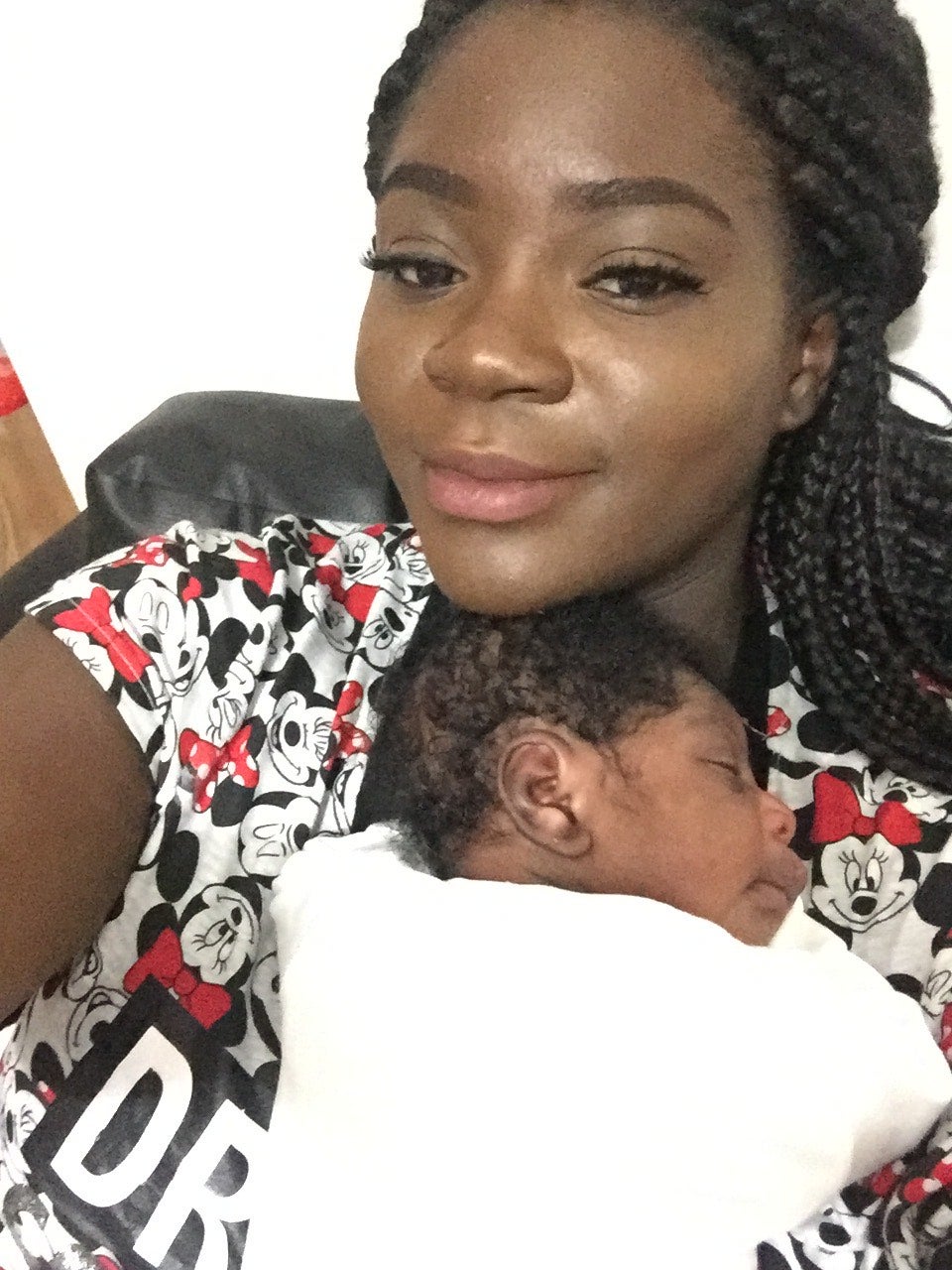‘They didn’t believe I was in labour’ says Black mother ‘ignored’ by midwives
MPs warn government failing to close the gap in maternal death rate for Black women

A Black woman says she was left ‘traumatised’ and forced to go without pain relief after midwives didn’t believe she was in labour.
Charity co-founder, Tinuke Awe, 31, was induced after experiencing late pre-eclampsia while pregnant with her first child in 2017.
Pre-eclampsia is a condition that causes high blood pressure in pregnant women. It can be dangerous, but easily treated when detected early.
Ms Awe said: “Pre-eclampsia can be life-threatening for mum and baby, and it could’ve been fatal if I wasn’t treated. I was told I couldn’t leave the hospital and had to be induced.
“They said the hormones could take 24 hours to work, but my labour happened really quickly and when I told the midwife she didn’t even believe I was in labour.”
The mother-of-two claims that despite needing to be induced, the risks were never explained to her.
“I felt so overlooked and it was horrible how nobody listened to me,” she added. “I ended up having to have an assisted delivery which isn’t what I wanted, but it could’ve been avoided if someone had acknowledged I was in labour rather than ignore me. I just felt so unimportant.”
Although the birth was difficult, her son Ezekiel, now 5 years-old, was born without any complications and without the need for a long hospital stay, but Ms Awe isn’t the only Black woman to face a distressing birth.
Software developer, Fey Ijaware, 31, was forced to have an induced birth and episiotomy with her first child in 2020 after suffering from pelvic pain, or SPD, during her pregnancy. SPD is a condition which causes serious discomfort such as stiffness in the joints and back pain.
The trauma of the birth left her baby son in the NICU for almost a week after Ms Ijaware says she was denied a C-section.
Ms Ijaware, from Manchester, said: “I begged the midwives to give me a C-section as I’d done a lot of research and knew the induction could put my baby in distress. But my requests were ignored, and it really felt like I wasn’t being listened to or taken seriously.
“Everyone wants happy memories of their pregnancy, but I just wanted my baby to be safe and had nobody to advocate for me.”
It wasn’t until her son Eric stopped moving that the consultant was called to perform the C-section, but by then his oxygen levels had dropped.
Ms Ijaware added: “I was so cold that I was shaking when he was born. I wasn’t even told that he’d been taken to the NICU, I just woke up and he wasn’t there.
“I’m thankful that Eric made a good recovery and he’s now running about like most children, but I can’t stop the bad memories and it’s put me off having another baby.”
Ms Ijaware has praised the work of the charity Five X More, which was set up by Ms Awe alongside Clotilde Abe.
The organisation help give advice and empower Black women to make informed choices during pregnancy and after childbirth.
Ms Awe said: “I had such a horrible experience and it highlighted that something is fundamentally wrong with the system.
“When women experience these disparities in maternity care it has a long-lasting impact on them and their babies. I know first-hand that the trauma stays with you.”
The women’s stories come as the Women and Equalities Committee has challenged the government over failures to address inequalities in maternity care which have led to Black women dying at four times the rate of white women.
The Committee is particularly concerned that the Government and NHS leadership have “underestimated” the role racism plays in levels of maternity care. They also feel current measures to tackle the disparities are “necessary but insufficient”.
Five X More hope that the testimonials of the women they support can be used to show that better outcomes are possible with their ‘five steps for self-advocacy‘ being used to encourage women to ask for things like a second opinion.
The importance of promoting good maternal experiences as well as bad is something Ms Awe knows after having a positive second pregnancy.
She said: “The statistics can be really scary, but our charity isn’t here to fearmonger. We don’t want women to be scared, we just want to give them advice on how they can be empowered to advocate for themselves.
“When I had my daughter, it was a much more pleasant experience. My midwife really empowered me and told me to listen to my body. But this is why Five X More is so important as we want to learn from the good so health professionals can do more of it.”
Five X More is about to hold its annual Awareness Week from 24 to 30 April where they hope to draw more attention to maternal inequalities and share resources on the theme of ‘Respectful Maternity Care’.
To find out more about Five X More or receive support visit the website here.
Subscribe to Independent Premium to bookmark this article
Want to bookmark your favourite articles and stories to read or reference later? Start your Independent Premium subscription today.

Join our commenting forum
Join thought-provoking conversations, follow other Independent readers and see their replies